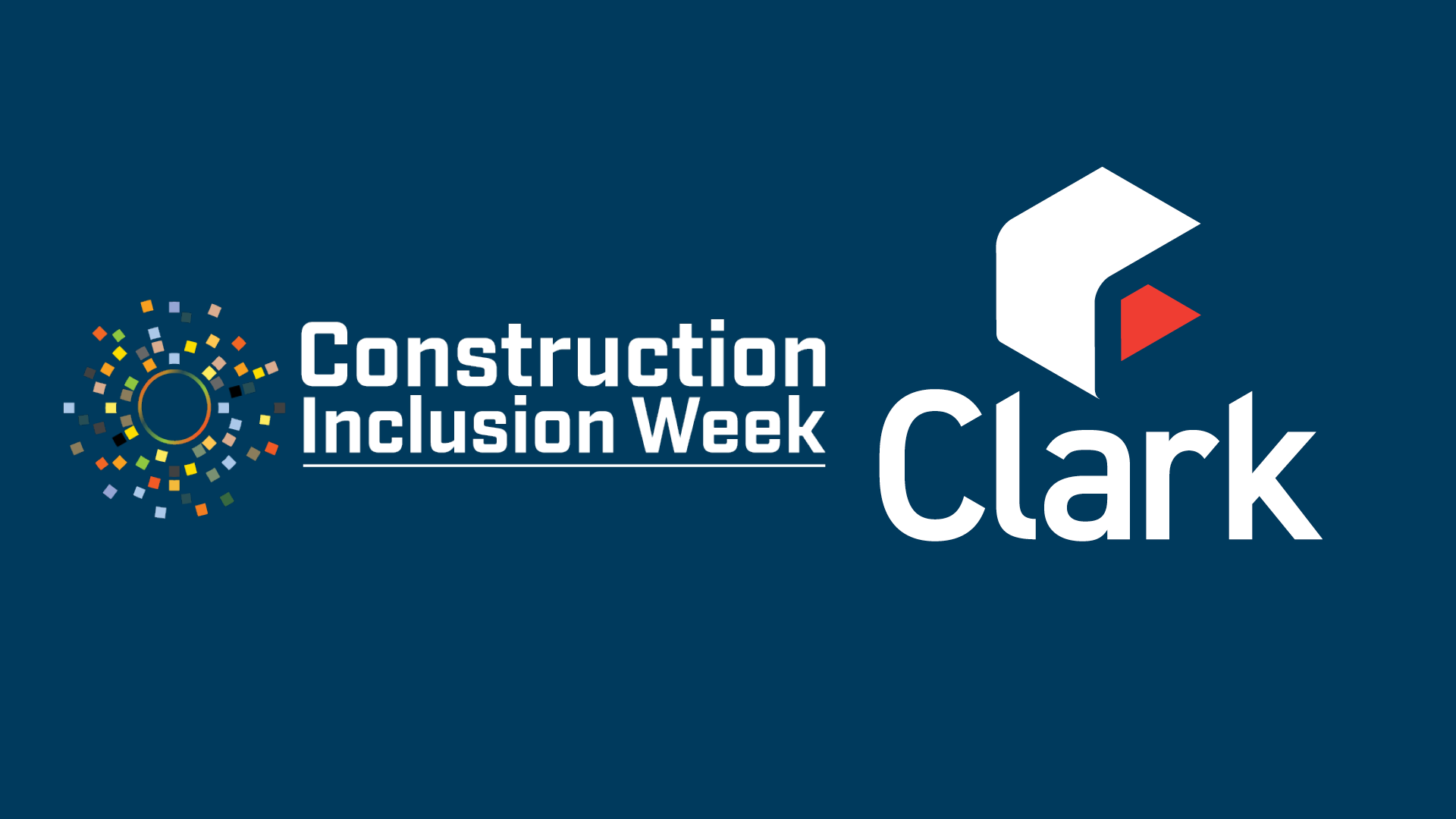
As a part of Construction Inclusion Week we will have articles from Clark team members discussing various topics in a JEDI lens.
by Traci Brower
Becoming an ally in the context of Justice, Diversity, Equity, and Inclusion (JEDI) means actively and empathetically supporting individuals and groups who are marginalized or underrepresented due to factors such as race, ethnicity, gender, sexual orientation, disability, or other characteristics. Allies recognize and acknowledge systemic inequalities and work to dismantle them by advocating for fairness, inclusion, and equal treatment.
Becoming an ally is a crucial step in demonstrating your commitment to your company’s Justice, Equity, Diversity, and Inclusion (JEDI) efforts. Being an ally not only supports your coworkers and colleagues from marginalized groups but also helps you become more committed and accountable to these initiatives. Here’s how:
- Empathy and Understanding: Being an ally requires you to empathize with the experiences and challenges faced by individuals from underrepresented groups. This understanding can deepen your commitment to JEDI efforts as you recognize the importance of creating a more inclusive workplace.
- Active Engagement: Allies actively engage in conversations and actions that promote diversity and inclusion. This engagement keeps you accountable as you actively participate in initiatives, discussions, and activities related to JEDI.
- Learning and Growth: As an ally, you commit to ongoing learning and growth. You seek to educate yourself about the experiences and needs of marginalized groups, as well as the historical and systemic issues that contribute to inequality. This continuous learning helps you stay accountable to your own personal development in this area.
- Amplifying Voices: Allies use their privilege and influence to amplify the voices of marginalized individuals. By doing so, you become a champion for diversity and inclusion, holding yourself accountable for using your position to advocate for those whose voices may not be heard.
- Challenging Bias: Allies actively challenge biases, stereotypes, and discriminatory behavior when they encounter them. This commitment to confronting bias, even when it’s uncomfortable, demonstrates your dedication to a more just and equitable workplace.
- Supporting Inclusive Policies: You can hold yourself accountable by advocating for and supporting policies and practices within your company that promote diversity and inclusion. This may involve pushing for changes in hiring practices, advancement opportunities, or employee resource groups.
- Creating Safe Spaces: Allies create safe spaces where individuals from marginalized groups can share their experiences and concerns without fear of judgment or reprisal. This commitment to providing a safe environment is a vital aspect of JEDI efforts.
- Being an Ally Beyond Work: Your commitment to being an ally extends beyond the workplace. It means being an advocate for JEDI principles in your personal life and communities as well, which demonstrates your holistic commitment to equity and inclusion.
- Seeking Feedback: Continuously seek feedback from colleagues and friends who belong to marginalized groups. Their perspectives can help you better understand their needs and experiences, and it shows your commitment to self-improvement in your allyship journey.
- Taking Responsibility: Being an ally means taking responsibility for your own actions and behaviors. If you make mistakes or say something insensitive, acknowledge it, apologize, and commit to doing better. This self-accountability is an essential part of allyship.
- Networking and Building Relationships: Build relationships with colleagues from diverse backgrounds. This not only enriches your own perspective but also demonstrates your commitment to creating a diverse and inclusive network within your organization.
In essence, being an ally means actively aligning yourself with the principles of justice, diversity, equity, and inclusion and using your privilege and influence to advance these values for the benefit of marginalized individuals and communities. It involves a deep commitment to creating a more just and inclusive world for everyone.
Becoming an ally is an ongoing process that involves self-awareness, education, and action. By actively engaging in allyship, you not only contribute to your company’s JEDI efforts but also hold yourself accountable for creating a more equitable and inclusive workplace and society